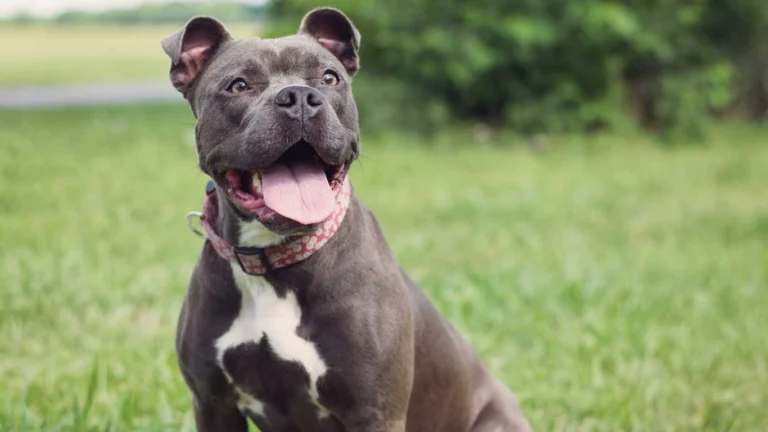Why Giving Dogs Plain Yogurt Daily Might Be a Great Idea
If you’ve ever caught your pup eyeing your snack, especially something like yogurt, you’re not alone. I’ve been asked this dozens of times at the clinic: can dogs eat plain yogurt daily? It’s one of those questions that sounds simple, but the answer depends on a few factors—your dog’s health, the type of yogurt, and how often we’re talking. I’ve worked with all sorts of pups, from picky eaters to allergy-prone rescues, and yogurt can actually be a surprisingly good addition to a dog’s diet—when done right.
Is Plain Yogurt Safe for Dogs?

First things first: yes, plain yogurt is generally safe for most dogs. The key word here is “plain.” No added sugars, no artificial sweeteners (especially xylitol, which is toxic to dogs), and definitely no fruit-on-the-bottom situations. I’ve seen dogs come in with tummy troubles just from licking a spoon of flavored yogurt, so keep it simple and unsweetened.
What makes yogurt a potentially good treat is that it’s a natural source of calcium and probiotics. These little bacteria can help support your dog’s gut health—especially useful for dogs with sensitive stomachs or those recovering from antibiotics. At our shelter, we often use a bit of plain yogurt to help rescue dogs bounce back after treatments. It’s gentle, tasty, and helps keep their digestion in check.
Benefits of Feeding Dogs Plain Yogurt

1. Gut Health & Digestion Support
This is the big one. Yogurt contains live cultures (think Lactobacillus and Bifidobacterium) that promote a healthy digestive system. If your dog has ever had antibiotics, or struggles with soft stools, a small daily dose of yogurt might help regulate things. I remember one senior beagle named Lucy who came in with chronic digestive issues—adding just a teaspoon of yogurt daily made a world of difference.
2. Calcium & Protein Boost
Plain yogurt is rich in calcium and protein, two nutrients dogs need for strong bones, teeth, and muscle development. Especially for growing pups or active breeds, a small dollop of yogurt can be a great supplement—as long as it doesn’t replace their balanced meals.
3. Picky Eater Trick
One of my favorite uses? Mixing a little yogurt into dry kibble to encourage eating. Some shelter dogs are too anxious to eat at first, and this trick helps them feel more comfortable at mealtime. Just enough to coat the food—not swimming in it!
Can Dogs Eat Plain Yogurt Daily?

So, we’re back to the original question: can dogs eat plain yogurt daily? Technically, yes—for most dogs. But should they? That’s where a bit of common sense (and maybe a quick chat with your vet) comes in. Every dog is different. Some dogs are lactose intolerant, which can cause gas, bloating, or diarrhea. Others handle it just fine, especially in small, consistent amounts.
- Small dogs: 1 teaspoon per day
- Medium dogs: 1-2 teaspoons per day
- Large dogs: 1 tablespoon per day
I usually tell pet parents to start slow. Introduce a tiny amount and watch for any signs of discomfort. If things look good after a few days, it’s probably safe to make it a regular treat. And always—always—read the label. The plainer, the better.
Best Types of Yogurt for Dogs
When choosing a yogurt for your dog, aim for the ones that are:
- Plain and unsweetened
- Low-fat or non-fat (especially for dogs watching their weight)
- Made with live active cultures
- Greek yogurt can be a great option—it’s thicker and often has more protein with less sugar
From my time working with rescue pups and clinic clients alike, I can confidently say yogurt is one of those little “extras” that can be both nutritious and comforting for dogs—if you get it right. Keep it plain, go slow, and let your pup’s body be the guide.
What to Watch Out For: Potential Downsides of Daily Yogurt

Alright, now that we’ve talked about the upsides, let’s be real—there are a few things to watch out for when it comes to giving your dog plain yogurt daily. Not every dog is going to thrive on dairy, no matter how plain and probiotic-rich it is. I’ve seen more than a few well-meaning pet parents overdo it and end up with some serious clean-up duty (you know what I mean).
Lactose Intolerance
Some dogs are like that one friend who insists on eating ice cream even though it wrecks their stomach. Dogs can be lactose intolerant too, and it’s more common than people think. While yogurt does have less lactose than milk, it can still cause issues like:
- Loose stools or diarrhea
- Excessive gas (and not the fun kind)
- Abdominal discomfort or bloating
If your pup starts acting weird after their yogurt treat—like not eating, being extra gassy, or needing way more potty breaks—it might be time to cut back or stop altogether. I always recommend trying just a tiny spoonful at first and keeping an eye out over the next 24 hours.
Hidden Ingredients in Store-Bought Yogurt
Honestly, this is a sneaky one. Not all yogurts are created equal, and some brands love throwing in extra stuff that’s totally unnecessary—or even dangerous—for dogs. Watch out for:
- Xylitol – This artificial sweetener is highly toxic to dogs. One lick of xylitol-sweetened yogurt can land your pup in the emergency vet.
- High sugar content – Too much sugar can cause weight gain, dental problems, and digestive issues over time.
- Artificial flavors or fruit chunks – Many of these additives are processed and don’t sit well with a dog’s system.
When in doubt, keep it simple: plain, unsweetened, and ideally organic if you can swing it. If you’ve got the budget for it, there are even yogurts made specifically for dogs now.
How I Introduce Yogurt in the Clinic & Shelter

Let me give you a behind-the-scenes peek into how we use yogurt at the shelter. It’s not just a treat—it’s a tool. Especially when we’re working with anxious or underweight dogs.
We often mix a spoonful into a bland diet—like boiled chicken and rice—for dogs coming off surgery or medication. It helps ease their stomachs and encourages them to eat. Sometimes, we even use it to hide pills (especially the bitter ones). One of our repeat shelter residents, Max the terrier, absolutely refused pills until we started disguising them in a dab of plain Greek yogurt. Problem solved.
For pups with kennel stress, yogurt is a soothing comfort food. Something about its creamy texture and coolness seems to calm their nerves. And hey, it makes for a great enrichment tool too—try spreading a bit inside a Kong and freezing it. Keeps them busy and nourished.
Homemade Dog-Friendly Yogurt Treat Ideas

If you’re feeling a little creative in the kitchen (and trust me, I’m no gourmet chef), there are some really simple and fun ways to use yogurt in homemade dog treats. These ideas have been big hits with dogs at both the clinic and my own home:
1. Frozen Yogurt Bites
Mix plain yogurt with mashed banana or pure pumpkin (not pie filling!) and freeze in silicone molds. Easy, healthy, and dogs love ’em.
2. Lick Mats
Spread plain yogurt on a textured lick mat, sprinkle some crushed kibble or blueberries on top, and freeze it. Great for stress relief and mental stimulation.
3. Stuffed Kong Filler
Combine plain yogurt with a bit of natural peanut butter (make sure it’s xylitol-free!) and a few small dog-safe treats. Stuff a Kong toy and freeze it for a long-lasting reward.
Not only do these snacks taste great (according to the tail wags), they also give your dog a break from the usual routine. And let’s be honest, we all love seeing them get that extra little joy in their day.
How Much Is Too Much? Portion Tips from Experience

Moderation is key. I can’t stress that enough. Just because yogurt is good doesn’t mean more is better. I once had a client whose golden retriever gained several pounds in just a few months because they thought “natural” meant “limitless.” (Spoiler: it doesn’t.)
Stick to these general portion guidelines unless your vet says otherwise:
- Small dogs (under 20 lbs): 1 teaspoon per day
- Medium dogs (20-50 lbs): 1-2 teaspoons per day
- Large dogs (50+ lbs): 1 tablespoon per day
If your dog is super active, young, or in recovery mode, you might have some wiggle room. But for the average house pup, keeping it small and consistent is the way to go. It’s all about adding a healthy boost—not replacing meals or creating new problems.
What Vets and Nutrition Experts Say About Daily Yogurt for Dogs

Over the years working at both clinics and shelters, I’ve picked up a ton of insight from our in-house vets and pet nutritionists. They’re not just throwing out trendy advice—they rely on science-backed info and real-world outcomes when it comes to pet diets. So what’s the general consensus from the experts on the big question: can dogs eat plain yogurt daily?
Short answer? Yes—if it’s done right. Most veterinarians agree that plain, unsweetened yogurt can be a great supplemental treat, especially for dogs who benefit from probiotics or added calcium. But it’s not a miracle food. It should never replace balanced, complete dog food that’s formulated to meet all your pup’s nutritional needs.
According to veterinary nutritionists, the key is moderation, watching for signs of lactose intolerance, and making sure you’re choosing a yogurt without additives. I always tell pet parents to stick with plain Greek yogurt if they can—it’s thicker, usually lower in lactose, and packs a bit more protein punch for your pup.
Clinical Uses in Veterinary Practice
I’ve seen yogurt used in more ways than you might expect in a clinical setting. We’ve used it to:
- Restore gut flora after antibiotics
- Ease diarrhea or mild digestive upset
- Serve as a safe medium for giving medications
- Temporarily supplement calcium for nursing dogs
Of course, every use comes with a vet’s go-ahead. It’s always smart to run dietary changes by your vet, especially if your dog has allergies, pancreatitis, or a sensitive GI tract.
Signs Yogurt Might Not Be a Good Fit for Your Dog

Even though yogurt has some solid benefits, it’s not for every dog. I’ve worked with plenty of pups that just didn’t tolerate it well—especially seniors or breeds with more delicate digestion. Here’s what to watch out for if you’ve recently added yogurt to your dog’s routine:
- Increased flatulence or bloating
- Loose stool or diarrhea
- Loss of appetite or acting “off”
- Scratching or signs of food sensitivity
If any of these pop up, it’s a good idea to hit pause and reassess. I usually recommend stopping yogurt for a few days and seeing if symptoms go away. You might also consider switching to a non-dairy probiotic supplement if gut support is your main goal.
Tips to Safely Add Yogurt to Your Dog’s Diet
Want to play it safe? Here’s how I recommend introducing yogurt to your dog, based on what’s worked well for our shelter dogs and clinic clients over the years:
1. Start with a tiny amount
A pea-sized taste is plenty the first time. Let their system adjust gradually.
2. Choose the right yogurt
Look for these on the label:
- Plain and unsweetened
- No artificial sweeteners (especially xylitol)
- Contains live active cultures
- Low-fat or non-fat is usually easier on the tummy
3. Don’t overdo it
Use yogurt as a supplement—not a meal replacement. A little goes a long way.
4. Monitor and adjust
Every dog is different. What works for one might not work for another. Watch how your dog responds and adjust accordingly. Trust your gut—and theirs.
So, Can Dogs Eat Plain Yogurt Daily?
At this point, you probably have a good sense of the answer. Yes, most dogs can eat plain yogurt daily—as long as it’s the right kind, the right portion, and your dog tolerates it well. It can offer helpful digestive benefits, support overall wellness, and even be a fun enrichment treat. But like anything, it’s all about balance.
In my own experience, yogurt’s been a gentle, nutritious go-to for calming upset stomachs, helping anxious rescues eat, and adding a little extra love into the daily routine. Whether it’s frozen in a Kong, stirred into breakfast, or served by the spoonful as a pill disguise—it’s one of those “human foods” that, with care, can absolutely work in a dog’s world.
References
Disclaimer
This article is for informational purposes only and is based on my professional experience as an Animal Care Specialist. It does not replace veterinary advice. Always consult your veterinarian before making changes to your dog’s diet—especially if your pet has existing health conditions or is taking medication.






